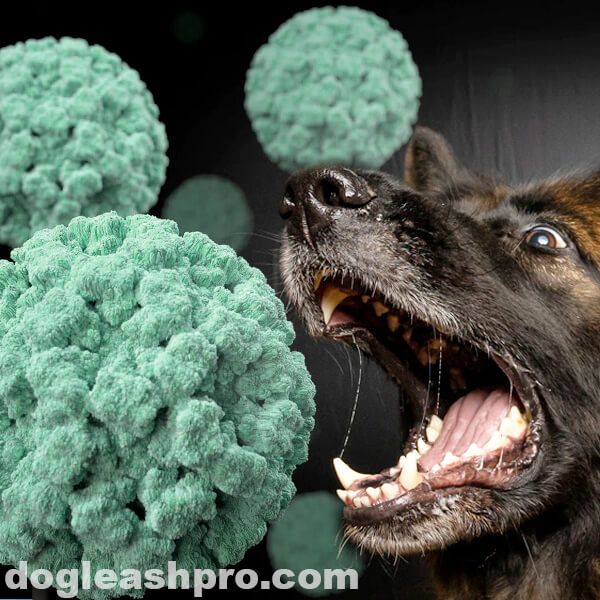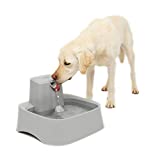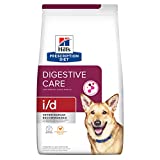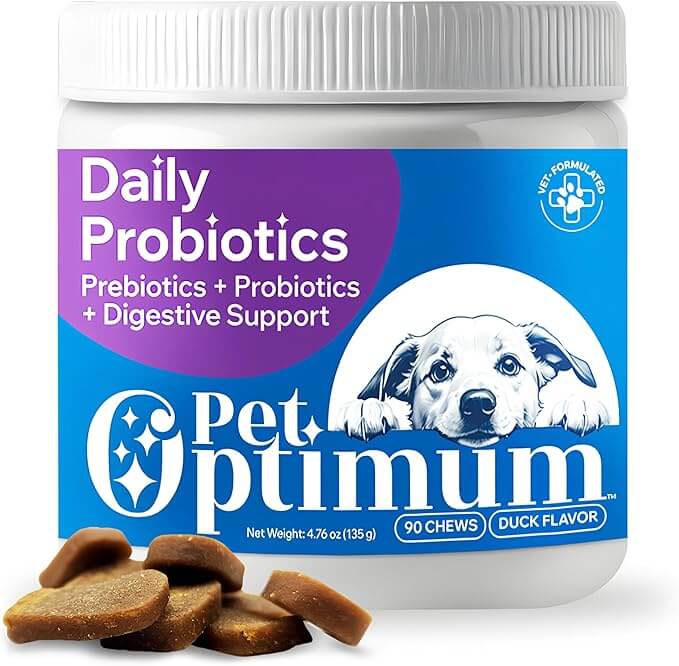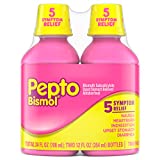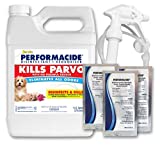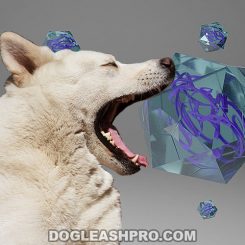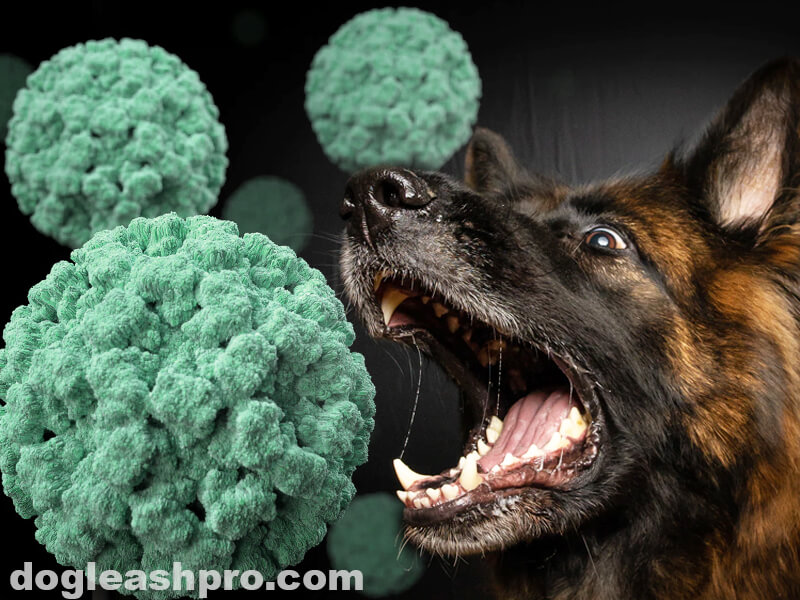
My best friend’s Labrador Retriever, Bear, was just 7 weeks old when he contracted Parvo. At that time, my friend had never heard of Parvo and didn’t even know what it was. She also didn’t realize how harmful and contagious this virus could be. She found out the hard way when her other dog, a German Shepherd Dog named Daisy, got it as well. Like many dog owners, she became worried and wanted to know if her puppies will survive parvo.
Table of Contents
How to cure Parvo without a vet for your dogs

This experience was traumatizing for my best friend because she didn’t have pet insurance for her two pups then.
Luckily, she came to me right away and informed me what was happening to her two pups. Based on the symptoms she described and learning that her two pups share the food and water bowl, I told her it may be Parvovirus.
I advised her to consult her vet right away. When our dogs don’t feel well, it’s best to contact the vet immediately. Time is of the essence and sometimes a delay could worsen a dog’s health condition.
Fortunately, her two dogs are doing well today and they are both healthy. She came to me the other day and suggested that I write this article to inform my readers. She wished that she had known the below information and wanted dog owners to stay alert and knowledgeable of this virus.
RECOMMENDED: Can A Dog Get Parvo Twice?
So here it is:
What is Parvo in dogs?
Parvo, also known as Canine Parvovirus or CPV, is a highly infectious and potentially fatal canine disease. The virus attacks the dog’s bone marrow and intestines and spreads through contact and excretions.
Puppies between the ages of 6 to 20 weeks have higher chances of contracting Parvo. The virus is also more likely to infect certain dog breeds than others. However, dogs of any age and breed can contract the disease unless they are vaccinated.
Unfortunately, no medicine can cure Parvovirus. The only hope is for the dog’s body to fight off the virus on its own. Keeping your furry friends hydrated and well-nourished until they recover is the key. With expert veterinary care, chances for survival are high.
Parvo treatment can also rack up a solid medical bill and dog owners without pet insurance may not find it affordable. This is why we highly recommend that pet owners sign up for pet insurance the moment they bring their furry pups home. Doing so can help alleviate some of that financial burden in the event of a doggy emergency.
But the good news is that Parvo can also be treated at home. With a little help from your vet, round-the-clock care, and proper nourishment, you can cure your pup’s Parvo without spending a fortune.
How do dogs catch Parvo?
Parvo isn’t airborne. However, it can spread through direct contact, secondary contact (with bowl, bed, toys, etc.), or through people that have been around a sick dog. Please note that an infected dog’s stool carries the highest concentration of this virus, which is why you must dispose of the dog poop properly.
How to prevent Parvo in dogs?
The best way to prevent Parvovirus is to vaccinate dogs when they are young. A complete vaccination course slowly builds immunity to the virus and is further reinforced by booster shots administered later.
Vaccinating a breeding mother also ensures her newborn puppies are protected against Parvo until they are of vaccination age.
How to prevent Parvo from spreading?
The best way to prevent Parvo from spreading is to quarantine the infected dog. Parvo can spread through contact and by sharing food and water bowls. Keeping the infected dog away from others will isolate the virus too.
Practicing strict hygiene around infected dogs can contain the spread of the virus. Use disposable gloves when handling your pooch and clean everything that touched him with bleach or special cleaners.
How do I know if my dog has Parvo?
Parvo diagnosis involves medical tests administered by veterinary professionals. Several other diseases share Parvo symptoms, which is why it is important to get a vet’s opinion. If your furry friends are not yet vaccinated, you should immediately get them tested for Parvo symptoms, which we will discuss next.
What are the symptoms of Parvo in dogs?
Parvo starts showing its signs within a week after the dog has contracted it. As the disease takes hold of the dog, the signs become more severe. If your canine friend shows the following symptoms, schedule a checkup with your vet right away.
Parvovirus symptoms in dogs
- Lethargy.
- Loss of hunger.
- Abnormal body temperature.
- Diarrhea (often bloody).
- Stomachache.
How long does Parvo last in a dog?
With proper care, dogs can make a full recovery within 5 to 7 days. The first 3 to 4 days are the most critical, and dogs who manage to live through that period almost always survive.
Can a dog survive Parvo?
Some dog owners who suspect their dog has Parvo may ask, “Can my dog survive Parvo?”
The answer really depends on the overall health of your K9 friends. Some dogs that have been diagnosed in later stages may not be able to survive even with aggressive treatments.
So, it is very important that when you notice something strange with the health of your furry friends to consult with your veterinarian right away in order to address the health issues as soon as possible.
What are the symptoms of Parvo in puppies?
Puppy owners should be extra vigilant as Parvo spreads readily in young dogs. Unless the pup is fully vaccinated, owners should stay alert and call the vet if they observe any of the following symptoms.
Symptoms of Parvovirus in puppies
- Weakness.
- Vomiting.
- Bloody diarrhea.
- Fever.
- Stomach pain.
- Weight loss.
- Anorexia.
What are the early symptoms of Parvo in puppies?
Parvo symptoms in puppies are mild at the start of the Parvovirus. Lethargy and anorexia are the first to appear, followed by vomiting and diarrhea. Some puppies may stop eating or drinking altogether, which will affect their development and growth. If this is the case, be sure to contact your vet.
Note that the pup may not display all symptoms at once, which is why you shouldn’t wait for all of them to appear. Parvo can go undetected in puppies for a few days, and immediate medical attention is needed after the first signs appear.
How long does Parvo last in a puppy?
The duration varies depending on how infected the puppy is. Some pups can recover in as little as three (3) days, while others require longer hospitalization. Note that your baby dog still carries the virus after the initial recovery and can infect other dogs for another 3 to 4 weeks.
Can a puppy survive Parvo without going to the vet?
No, Parvo causes severe diarrhea in puppies and without proper fluid therapy, a puppy could pass away within 48 to 72 hours. The mortality rate of Parvo is 91% if left untreated.
DON’T MISS: Puppy Has Diarrhea But Still Playful
What are the last stages of Parvo before it kills your puppy?
If Parvo is not treated right away, the last stages of Parvo include worsening diarrhea and vomiting that already contains blood.
At this stage, the sick puppy most likely has not taken anything by mouth which will lead to severe dehydration and electrolyte imbalance.
Within a few days, stress on the body organs, especially the heart causes increased heart rate and then sepsis will develop followed by seizures, septic shock and eventually killing the puppy.
What are the symptoms of Parvo in older dogs?
The risk of contracting Parvo does not lessen with age. An unvaccinated mature dog is just as likely to get infected. Unlike puppies though, adult dogs display milder symptoms or no symptoms at all. Nevertheless, they can still transmit the virus to other dogs.
Symptoms of Parvo in older dogs
- High fever.
- Loss of appetite.
- Smelly diarrhea, often yellow or bloody.
- Weakness.
- Convulsions.
What are the symptoms of Parvo in Pitbull puppies?
Pitbulls are among the unlucky dog breeds that are more susceptible to Parvo. But luckily, that doesn’t result in a higher mortality rate. Your Pitbull is just as likely to survive as any other dog with timely diagnosis and proper care.
Symptoms of Parvo in Pitbull puppies
- Elevated or low body temperature.
- Loss of hunger.
- Weakness.
- Uncontrollable vomiting.
- Dehydration.
- Diarrhea.
How to diagnose Parvo in dogs?
Parvo can be diagnosed through a Polymerase Chain Reaction (PCR), blood screening, or stool test. Testing for Parvo must be done by a medical professional as the symptoms closely resemble other diseases.
Certain diseases show similar clinical signs as Parvo, so the diagnosis is best left to the professionals. Some such conditions are:
- Gastrointestinal distress.
- Food poisoning.
- Grape toxicity.
- Coronavirus.
- Enteritis.
Can dogs recover from Parvo?
A dog that has lived through the first four (4) days of Parvo and is receiving treatment has a better chance of recovering from the disease.
In fact, most dogs that recovered live a normal and active lives.
However, some dogs will continue to have gastrointestinal problems for a few weeks to several months due to the damage done to the lining of the intestinal tract, but these usually resolve themselves as long as they are given a well-balanced diet.
How can I treat my dog for Parvo at home?
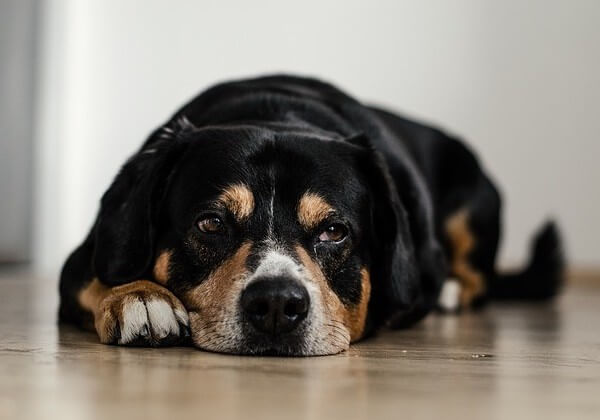
Parvo shares its symptoms with several other canine diseases, which is why you need to get your pooch tested as soon as the symptoms appear. The wrong treatment can make matters worse.
Many dog owners may wonder, Can you treat Parvo in dogs at home? The quick answer is yes. The first step is to take your canine pups to the vet. If your pups do turn out to have Parvo, consult with your vet for the best course of action. Under no circumstances should you take the outpatient route without your vet’s approval.
Although hospitalization seems like the most optimum option, dogs with Parvo are almost as likely to survive at home. One study found that dogs who received treatment under modified outpatient protocols had a survival rate of 80% compared to the 90% of standard inpatient treatment. Since outpatient treatment costs around a tenth of hospital care, it is an effective, affordable alternative.
Can a dog survive Parvo at home?
Yes, a dog can survive Parvo at home provided you have consulted with a vet first to know about the proper way of taking care of the dog at home.
It should be pointed out that the survival rate for hospital care is higher than at-home care.
How to treat Parvo in dogs
Outpatient or at-home treatment is a low-cost yet proven way to combat Parvo. Treatment involves hydrating the affected dog, giving him an easily digestible diet, and administering anti-vomiting and anti-diarrheal medicines until he recovers.
Inpatient or hospital treatment costs are much higher due to round-the-clock professional supervision. It involves administering IV fluids, anti-vomiting, antibiotic and anti-diarrheal medications, monitoring electrolyte levels, and keeping the patient well-nourished.
Critical cases are best left to the professionals, but you can go the outpatient route if your vet allows.
How to treat Parvo in dogs at home
Parvo doesn’t destroy its host, but diarrhea and vomiting can severely dehydrate a dog. So the key to successful recovery is keeping your dog hydrated and well-nourished while he recovers.
You can manage that at home, but make sure to keep the vet updated on your pup’s condition. With careful supervision and timely advice from the vet, a dog has an 80% to 85% chance of recovery.
Day 1 Parvo Treatment
On day 1, your pooch may be too weak or reluctant to drink water. Administering subcutaneous or IV fluids and electrolytes can help keep his fluid level up.
Monitor your dog’s temperature. If he feels cold, turn up the heat. If he feels feverish, cool him down with wet rags or icy water.
Day 2 Parvo Treatment
At this point, you can attempt to eliminate the nasty bacteria in your pup to help him fight against the disease. Ask your vet for an effective antibiotic and administer it in moderate quantities.
Keep hydrating your four-legged friend — naturally or through the method stated above. Your pooch also needs to be well-fed, even if he doesn’t want to eat. It’s important to start small. Start by feeding your pooch an easily digestible meal. You may also need anti-diarrheal pills to soothe the stomach.
Day 3 Parvo Treatment
Keep your vet constantly updated on this situation and keep hydrating and feeding your furry family member. Since Day 3 Parvo treatment is the most critical, try not to do anything different from before.
If you manage to keep your pooch well-fed and hydrated and he makes it past the third day, there’s a high chance that your furry friend may survive.
Day 4 Parvo Treatment
The worst has passed, but your work isn’t over yet. Your pooch will show signs of recovery and may start eating and drinking on his own. Keep serving easy-to-digest food and keep hydrating your dog artificially and naturally. Monitor his condition and keep your vet informed.
A weakened immune system and loss of white blood cells can make your furry pal vulnerable to other infections. Practice strict hygiene and don’t let your pooch catch any other diseases.
Can I give my dog Pedialyte for Parvo?
Yes, Pedialyte can be given as supportive care to prevent dehydration as long as it is recommended by your dog’s veterinarian.
Pedialyte can replace some of the lost sodium and potassium as a result of diarrhea and vomiting.
The recommended amount is between 2 mL to 4 mL of Pedialyte per pound of body weight to be given every 1 to 2 hours.
RELATED: Can Dogs Drink Ensure? Can I Give My Dog Ensure?
Day 5 Parvo Treatment
If your canine buddy continues to show improvement, you can add probiotic supplement to his diet with your vet’s approval. Your pup’s organs are weak at this stage, so don’t feed him anything that can strain him.
Feed your pooch a light diet for the next few days and avoid any solid food for the time being. If your pup doesn’t show signs of recovery, he may be infected with another disease. Seek immediate veterinary help if this is the case.
Day 6 Parvo Treatment
If all seems promising, you can now take your pooch out for short walks. Short walks are important because they won’t tire out your pooch. Continue to make sure he is hydrated and feed him light meals.
Your pup still needs constant supervision; you should spend as much time with him as possible.
Day 7 Parvo Treatment
Schedule a visit to your vet and get your dog checked for any other infections. Your pup may be out of danger, but he is not 100% yet. Avoid letting him near any human food or strenuous activities for the next ten days. Make sure your dog stays hydrated and properly fed.
How much does it cost to treat Parvo in dogs at home?
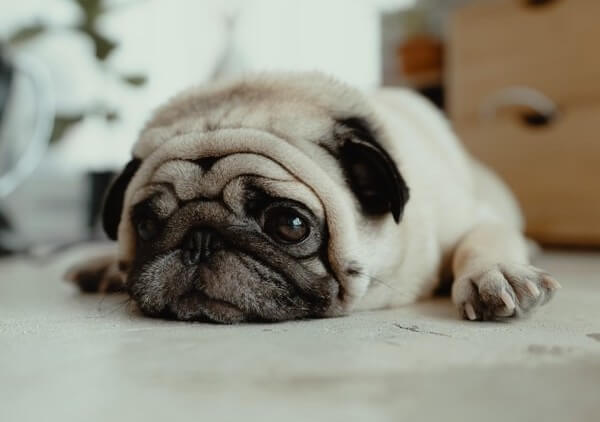
The cost of treating Parvo at home can cost as little as $200 to $350. This includes testing, medication, equipment, and supplements.
Treating Parvo at vet clinic
Treating Parvo at the clinic or hospital involves continuous professional care. IV fluids keep the dog hydrated. The temperature is constantly monitored. Antibiotics fight off infections, and anti-vomiting and anti-diarrheal medications keep the dog from losing bodily fluids.
Veterinary clinics and hospitals have a 90% success rate in treating dogs with Parvo.
Hospital costs for treating Parvo in dogs
Hospital treatment for your pooch can cost around $2,500 or more, depending on the length of stay. This includes about $220 for IV fluids; $10 to $30 for the antibiotic, anti-diarrheal, and antiemetic medications; and about $500 to $600 in room charges.
A local veterinary clinic may offer lower rates, but they may not offer premium 24-hour care. Some clinics can cost as low as $400 to $500.
What is the fastest way to cure Parvo?
There really is no fast way to cure Parvo except to give supportive care to your furry friends by properly managing electrolyte intake through intravenous (IV) treatment or even administering plasma transfusions in severe cases.
Pain relievers and anti-vomiting medications must also be given.
Some veterinarians also prescribe deworming to lessen diarrhea due to intestinal parasites and antibiotics to prevent septicemia or blood poisoning.
How To Cure Parvo Without A Vet: 10 Ways
Home remedies for Parvo treatment
If you’re treating your dog for Parvo at home, you have to be well equipped with the necessary items. So here are the ten ways you can cure Parvo without a vet at home:
1. Medical grade fluids
A dog suffering from Parvo needs to keep his fluid level up. Unfortunately, continuous diarrhea and vomiting can drain your pup’s water and vital electrolytes.
Giving your furry friend water isn’t enough — he would need electrolyte solutions. Medical grade fluids will help the ailing pooch recover its electrolyte count and stay hydrated.
2. Easily digestible foods
Parvo severely weakens your dog’s digestive system, which is why you must serve your pooch food that his stomach can process quickly. Examples of easily digestible food include boiled white rice, raw egg yolk, and baby food. These are light on the tummy and give valuable energy to your pooch.
3. Proper nutrition
Your pup’s weak body requires a balanced diet to regain his vigor. During recovery, feed your dog a balanced but light diet of food recommended by your vet. Avoid any human foods as they may contain toxic ingredients, unnecessary sugar, and high sodium.
4. Antibiotics
Antibiotics don’t work on viruses. However, they can eradicate any other nasty infections that may have snuck into your dog’s ailing body. While your pup’s body fights off the virus, you can administer a good antibiotic with your vet’s approval to take care of these nasties.
5. Anti-diarrheal medications
Diarrhea means that the dog’s body will lose some water. It is the primary cause of passing in dogs suffering from Parvo. With each watery poop, your dog loses water and nutrients and gets closer to its demise. Anti-diarrheal medicines like Pepto can soothe your pup’s stomach and stop the watery stools while he recovers.
6. Anti-nausea medications
Feeding your dog won’t do any good if he throws it all right up. Your canine friend needs all the nourishment he can have, but the food has to reach his belly first. Anti-nausea medications can help your pooch keep his food down while also preventing fluid loss through vomiting.
7. Pain medications
One of the symptoms of Parvo is stomach pain. To alleviate it, you can try using pain medications. The better the dog feels, the better it will eat, drink, and sleep. As all three are vital for the recovery process, pain pills can be beneficial.
8. Dog’s temperature
Another thing you need to keep tabs on is your dog’s temperature. Parvo causes unnatural fluctuations in your dog’s body temperature, which can damage his organs.
The optimum temperature of a dog’s body is around 101.5°F. If the thermometer reads below it, use some blankets to warm your dog. If it reads above that, cool your furry friend with wet rags and cold water.
9. Treating Parvo in isolation
Quarantine the affected dog immediately and treat the Parvo-stricken dog in isolation. Be very careful not to carry the virus with you and clean your clothing thoroughly after every visit. Treating one dog with Parvo requires so much effort; you wouldn’t want more of these on your hands.
10. Disinfecting once recovered from Parvo
Parvovirus is tough as nails and is resistant to most household detergents. However, you have to clean the place up after your dog recovers.
Bleach works wonderfully against Parvovirus. You can also use special Parvovirus eliminating cleaners, like the Performacide Kills Parvo Disinfectant, for an even better result.
How to treat Parvo naturally?
There are three (3) things you need to address when it comes to how to treat Parvo naturally. These three (3) are:
- Hydration.
- Low blood sugar level.
- Diarrhea.
Dehydration and maintaining the right level of blood sugar need to be done by a veterinarian since it involves the administration of intravenous (IV) fluid via a catheter.
Or you may add electrolyte powder to your dog’s drinking water.
DON’T MISS: What Can Dogs Drink Besides Water?
For diarrhea, aside from anti-diarrhea medicines, probiotics are also recommended for puppies suffering from Parvo.
Probiotics contain good bacteria that help improve the digestive system. It also reduces the number of bad bacteria, thereby, blocking the adhesion of bad bacteria to the intestinal walls.
Parvo treatment at home Walmart
The good news is that you can also purchase remedies for diarrhea and vomiting at Walmart.
The first one is PetAlive Parvo-K Granules which contains 100% homeopathic ingredients. The great-tasting granules can be sprinkled on the puppy’s tongue for rapid absorption.
The PetAlive Parvo-K Granules are not known to have any adverse side effects.
This product is good for calming the digestive system and helps regulate the hydration levels of sick dogs or puppies.
Home remedies egg yolk for Parvo
Is egg yolk for Parvo effective? Yes, cooked egg yolk is rich in nutrients such as protein, vitamins and minerals as well as fatty acids that can help speed up the recovery of puppies with Parvo.
We discourage feeding puppies raw egg yolk to prevent salmonella infection.
Parvo treatment at home survival rate
If you cannot afford hospitalization, the survival rate for Parvo home treatment is 50%.
What food can cure Parvo?
There is no specific food that can cure Parvo, but experts recommend feeding infected dogs right away with a light and bland diet to prevent dehydration and to decrease digestive motility.
A single source of carbohydrates such as white rice mixed with a single source of protein can be added such as skinless chicken breast or extra-lean ground beef.
One way to make a dog eat is to blend the food and place it in a syringe to make it easier to administer orally.
What can I give my dog to get rid of Parvo?
Parvo has no specific cure but you can give your infected dog medications that could alleviate the symptoms.
One such medication that could help with vomiting or nausea is the anti-emetic drug Cerenia.
Your veterinarian may prescribe this drug because it may increase your furry friend’s appetite and it also has mild analgesic effects that can lessen stomach pain.
How to treat Parvo in puppies
Apart from the treatment available you’ve learned early on, here are additional information on how to treat puppies with Parvo.
Sick puppies have no appetite so one of the things you can do is to substitute dry food with wet food to stimulate appetite. Wet food has a higher amount of water content which is what puppies need while being treated for Parvo.
Next is to increase the blood sugar level which you can do by rubbing your puppy’s gums with Karo or maple syrup.
Is there a miracle cure for Parvo?
No, unfortunately there is no such thing as a miracle cure for Parvo. This disease is caused by a virus, hence, there is really no specific cure for it except to keep the infected dog well-hydrated and to correct the electrolyte imbalance as well as the glucose level.
Antibiotics are only necessary if there are signs of secondary infections.
When is it too late to treat Parvo?
If your dog is already severely dehydrated due to excessive vomiting and diarrhea, it may already be too late to treat Parvo.
This disease can quickly deteriorate the condition of an infected puppy and if the puppy is not treated with fluid therapy right away, you can see the end in just a matter of 2 to 3 days.
Related Questions
Pitbull owners need to be extra careful since Pitbulls are among the most vulnerable dog breed to Parvo. Signs of Parvo in Pitbulls include runny stool, vomiting, fever, weight loss, and sluggishness.
DISCLAIMER: THIS WEBSITE DOES NOT PROVIDE MEDICAL ADVICE
The information, including but not limited to, text, graphics, images and other material contained on this website are for informational purposes only. No material on this site is intended to be a substitute for professional veterinary advice, diagnosis, or treatment. Always seek the advice of your veterinarian or other qualified health care provider with any questions you may have regarding a medical condition.
Resources:
https://en.wikipedia.org/wiki/Canine_parvovirus
https://www.avma.org/resources-tools/pet-owners/petcare/canine-parvovirus

With over five years of specialized experience as an animal writer, my expertise lies in dog nutrition, health, behavior, grooming, and training. I am dedicated to delivering helpful and informative content that caters to the well-being of our furry friends. My primary goal is to empower pet owners with knowledge and ensure our canine companions thrive in health and happiness. In my free time, I love volunteering at local dog rescue centers.
